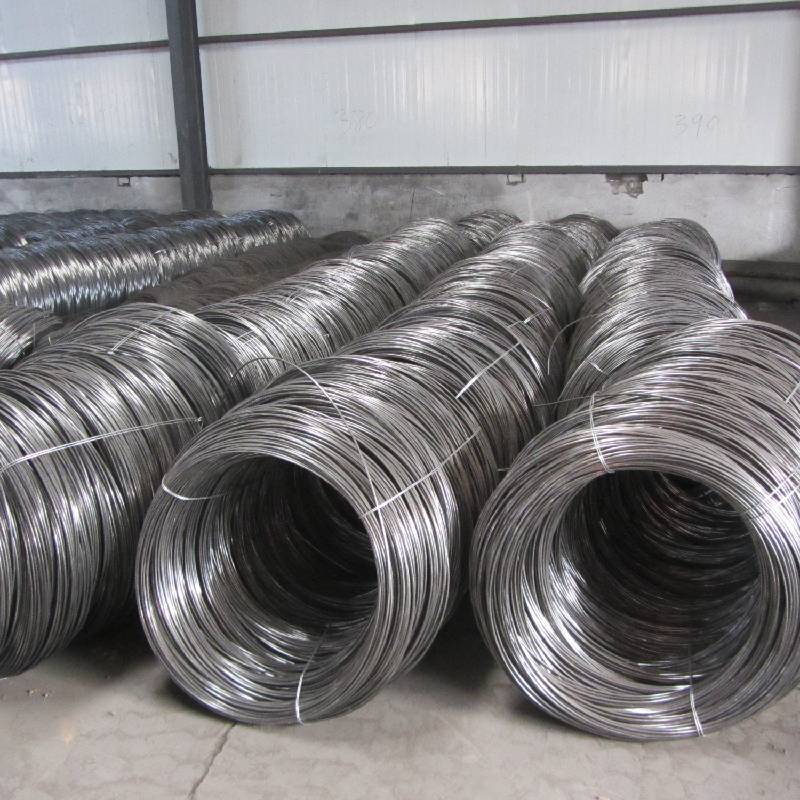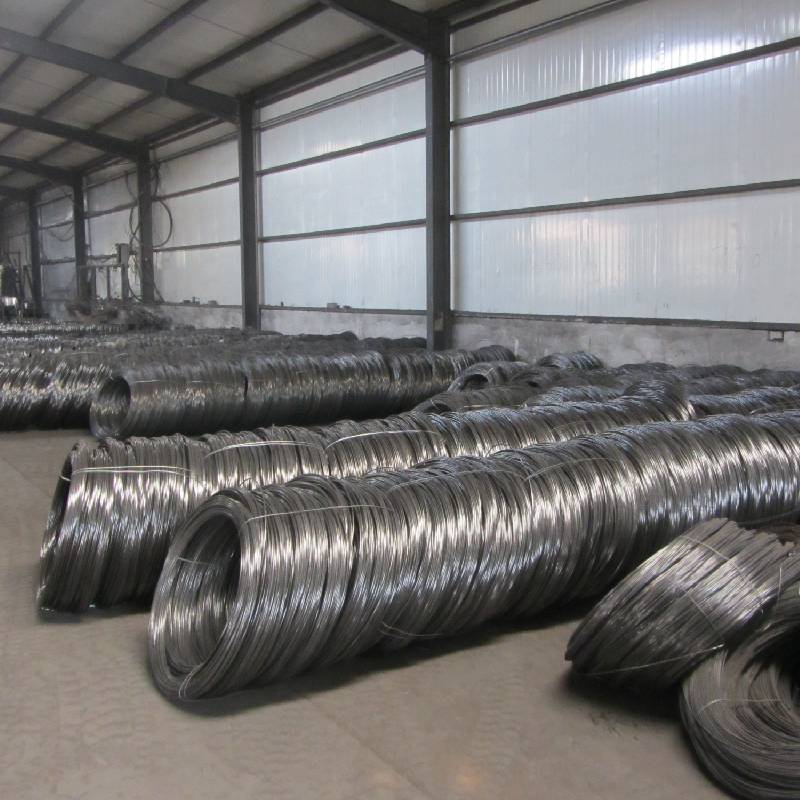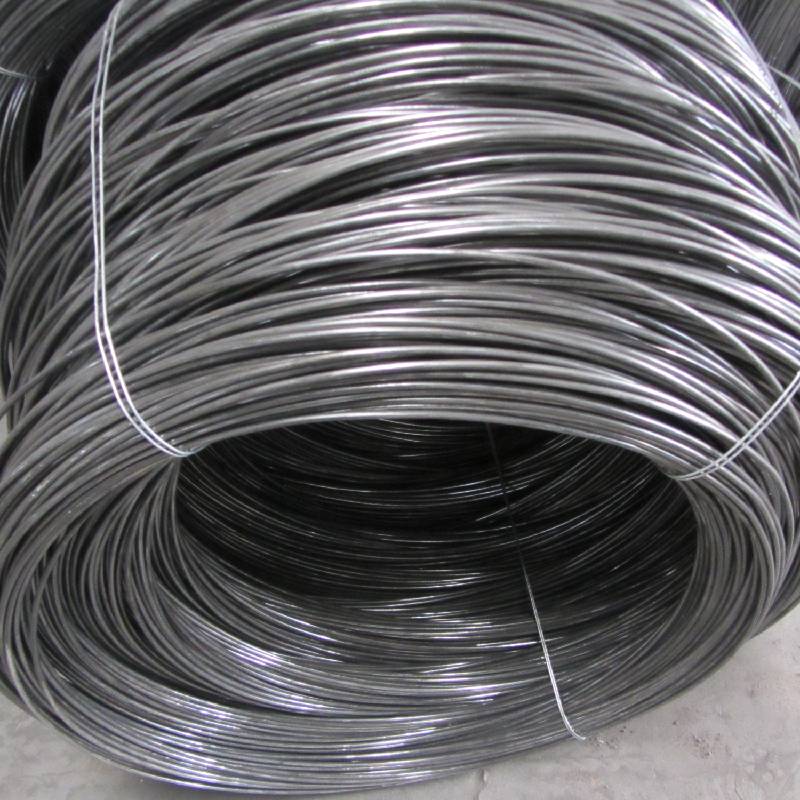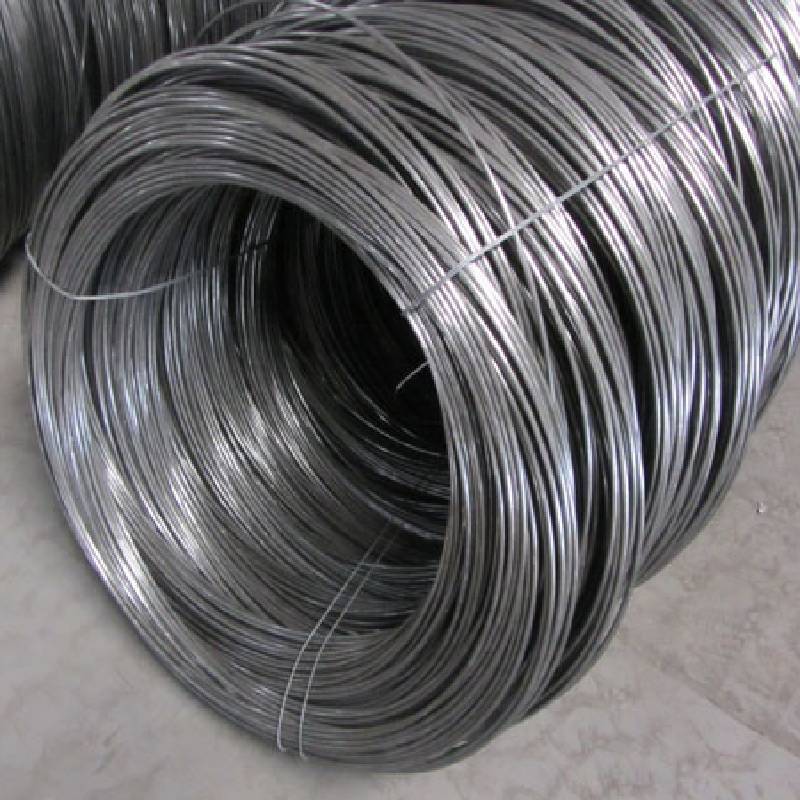In industrial applications, the choice of material significantly impacts durability, performance, and overall project cost. Among the foundational materials, Black Wire stands out as a critical component, widely utilized for its robust mechanical properties and cost-effectiveness. Characterized by its ungalvanized, heat-treated (annealed) state, it offers superior ductility and strength essential for demanding applications. This segment delves into the intrinsic value of black wire and explores the dynamic trends shaping its market landscape.
The global demand for steel wire products, including Black Wire, is propelled by sustained growth in infrastructure development, construction, automotive, and agricultural sectors. Industry reports project a steady compound annual growth rate (CAGR) for the wire and cable market, underscoring the indispensable role of raw materials like black wire. Key trends include the increasing adoption of higher strength-to-weight ratio wires for lighter, more efficient designs, and a growing emphasis on sustainable manufacturing practices that reduce environmental impact. Furthermore, advancements in alloy compositions and heat treatment technologies are continuously enhancing the performance characteristics of black wire, pushing its application boundaries. The market is also witnessing a trend towards customized solutions, where specific tensile strengths, elongations, and coil weights are tailored to client specifications, reflecting a shift from mass production to precision engineering.
This material's versatility makes it indispensable across diverse industries, from the tying of rebar in large-scale construction projects to the fabrication of springs and mesh products. Understanding its manufacturing process, technical specifications, and application advantages is paramount for B2B decision-makers seeking reliable and economically viable solutions.
The production of high-quality Black Wire is a meticulous process, involving several stages designed to impart specific mechanical properties. This process ensures the wire meets stringent industry standards for strength, ductility, and consistency.
This precise manufacturing sequence, particularly the controlled annealing, is what gives Black Wire its signature balance of strength and flexibility, making it highly versatile for various industrial applications. Service life is optimized through stringent material selection and process control, typically providing excellent performance for its intended application, often exceeding 10-15 years in non-corrosive indoor environments.
Target industries benefiting from this robust production methodology include petrochemical (for mesh and filtration), metallurgy (for reinforcement and tying), water supply & drainage (for filtration and support structures), construction (for rebar tying), and agriculture (for fencing and baling).

Understanding the technical specifications of Black Wire is crucial for engineers and procurement specialists to ensure optimal material selection for specific applications. Key parameters define its mechanical performance and suitability.
| Parameter | Typical Value Range | Unit |
|---|---|---|
| Material Grade | Q195, SAE 1008, SAE 1010 | - |
| Wire Diameter | 0.5 - 5.0 | mm |
| Tensile Strength | 350 - 600 | MPa |
| Yield Strength | 230 - 380 | MPa |
| Elongation (A5) | ≥ 15 - 25 | % |
| Coil Weight | 10 - 1000 | kg |
These parameters are critical for designers and engineers to ensure the selected Black Wire can withstand specific loads, environmental conditions, and processing techniques. Adherence to these specifications guarantees performance and safety in diverse industrial operations.
The inherent properties of Black Wire, specifically its high ductility and moderate tensile strength, make it exceptionally suitable for a wide array of demanding industrial and commercial applications. Its technical advantages translate into tangible benefits across various sectors.
These advantages position Black Wire as a preferred material for applications where flexibility, strength, and economic viability are paramount. Its ease of use and consistent quality contribute significantly to operational efficiency and project success.

Selecting the right supplier for Black Wire is a critical decision that impacts project timelines, material quality, and overall cost-efficiency. While many vendors offer black wire, discerning key differentiators in product quality, service, and customization capabilities is essential for B2B purchasers.
| Criterion | Standard Vendor Offerings | Leading Vendor Differentiators |
|---|---|---|
| Quality & Certifications | Basic ASTM/EN compliance, sometimes ISO 9001. | Comprehensive ISO 9001, CE, TUV certifications, rigorous in-house QC, verifiable test reports. |
| Product Range | Limited standard diameters and coil weights. | Extensive standard range, plus bespoke diameters (0.5mm - 6.0mm) and custom coil weights (10kg - 1.5 tons). |
| Customization | Minimal; mostly off-the-shelf. | Tailored material grades, specific tensile/elongation properties, varied surface treatments (e.g., oiling), custom packaging. |
| Lead Time | Standard 3-4 weeks; longer for non-stock. | Optimized production for quicker turnaround (10-15 business days for standard), expedited options. |
| Technical Support | Basic product information. | Dedicated engineering support for material selection, application optimization, and troubleshooting. |
For specialized B2B applications, a one-size-fits-all approach to Black Wire is often insufficient. Leading manufacturers recognize this need and offer extensive customization capabilities to match precise project specifications. This includes:
Partnering with a vendor capable of providing these tailored solutions ensures that the Black Wire perfectly aligns with the operational demands and performance expectations of complex industrial projects, leading to optimized efficiency and reduced waste.

The practical application of Black Wire across various industries showcases its indispensable value and the tangible benefits it delivers. These case studies highlight real-world scenarios where its properties were critical to project success.
Client: Major Commercial Real Estate Developer, EMEA Region.
Challenge: A large-scale high-rise project required millions of rebar ties over several phases. The client needed a cost-effective tying solution that ensured structural integrity, maximized labor efficiency, and minimized material waste. Traditional galvanized wire was over-specced and expensive for internal structural ties, while lower-quality black wire often snapped or corroded quickly before concrete pour.
Solution: Tikemetal supplied custom-annealed 1.5mm Black Wire in optimized coil weights (25kg per coil) suitable for both manual and semi-automatic rebar tying tools. The wire was sourced from Q195 low-carbon steel, ensuring superior ductility with a consistent tensile strength of 380 MPa and elongation of 22%.
Outcome: The project achieved an average 15% reduction in rebar tying time due to the wire's consistent flexibility and ease of use. Material waste was cut by 10% because of minimized breakage. The cost savings compared to alternative materials significantly boosted project profitability. Our ISO 9001 certified manufacturing process ensured material reliability, reducing site re-work and boosting confidence in structural integrity.
Client: Leading Agricultural Equipment Manufacturer, North America.
Challenge: The client's new generation of automatic baler machines experienced intermittent wire breakages and jamming with their existing black wire supplier. This led to machine downtime and reduced baling efficiency, impacting farmer productivity. The issue was traced to inconsistent wire diameter and brittle spots in the wire.
Solution: We collaborated with the client's engineering team to develop a custom-specified 2.0mm Black Wire. We focused on tighter diameter tolerances (±0.02mm) and a carefully controlled annealing profile to achieve an elongation of 20% and a tensile strength range of 400-450 MPa, significantly improving uniformity and ductility. Specific packaging on larger, continuous spools (500kg) was also implemented.
Outcome: Post-implementation, the client reported a 90% reduction in wire-related machine jams and breakages. The improved consistency and mechanical properties of the wire directly enhanced baler machine reliability and throughput. This led to higher customer satisfaction for the equipment manufacturer and established a long-term partnership, demonstrating the value of precise material engineering.
Client: Large-scale Waste Management and Recycling Plant, Europe.
Challenge: The plant required a robust and cost-effective solution for baling various recyclable materials (cardboard, plastics, PET bottles) into compact blocks for transport. The existing wire was prone to premature corrosion in humid conditions, leading to bale integrity issues, and inconsistent tensile strength caused frequent failures in high-pressure baling machines.
Solution: We provided a slightly oiled 3.0mm Black Wire, specifically engineered for enhanced surface protection against humidity without affecting its mechanical properties. The wire maintained a high tensile strength of 550 MPa, optimized for heavy-duty baling machines, and was supplied in large 1-ton coils to minimize changeovers.
Outcome: The client observed a significant improvement in bale stability and a reduction in wire failures by 85%. The light oiling helped mitigate surface corrosion, ensuring bale integrity over longer storage periods. This solution led to more efficient operations, reduced downtime for wire changes, and ultimately lower operational costs due to the wire's reliability and optimized packaging.

Establishing trust and ensuring consistent quality are paramount in the B2B metal industry. Our commitment to excellence in Black Wire production is underpinned by rigorous quality assurance protocols and internationally recognized certifications, cultivated over years of dedicated service.
Black Wire remains a cornerstone material in numerous industrial sectors, valued for its critical balance of strength, ductility, and cost-effectiveness. From fundamental construction reinforcement to advanced agricultural and industrial baling, its consistent performance, underpinned by rigorous manufacturing processes and quality controls, makes it an indispensable component. The capacity for customized solutions, combined with robust technical support and adherence to international standards, ensures that black wire continues to meet the evolving demands of modern industry. Choosing a reliable supplier committed to quality and customer service is key to harnessing the full potential of this versatile material.
RELATED PRODUCTS